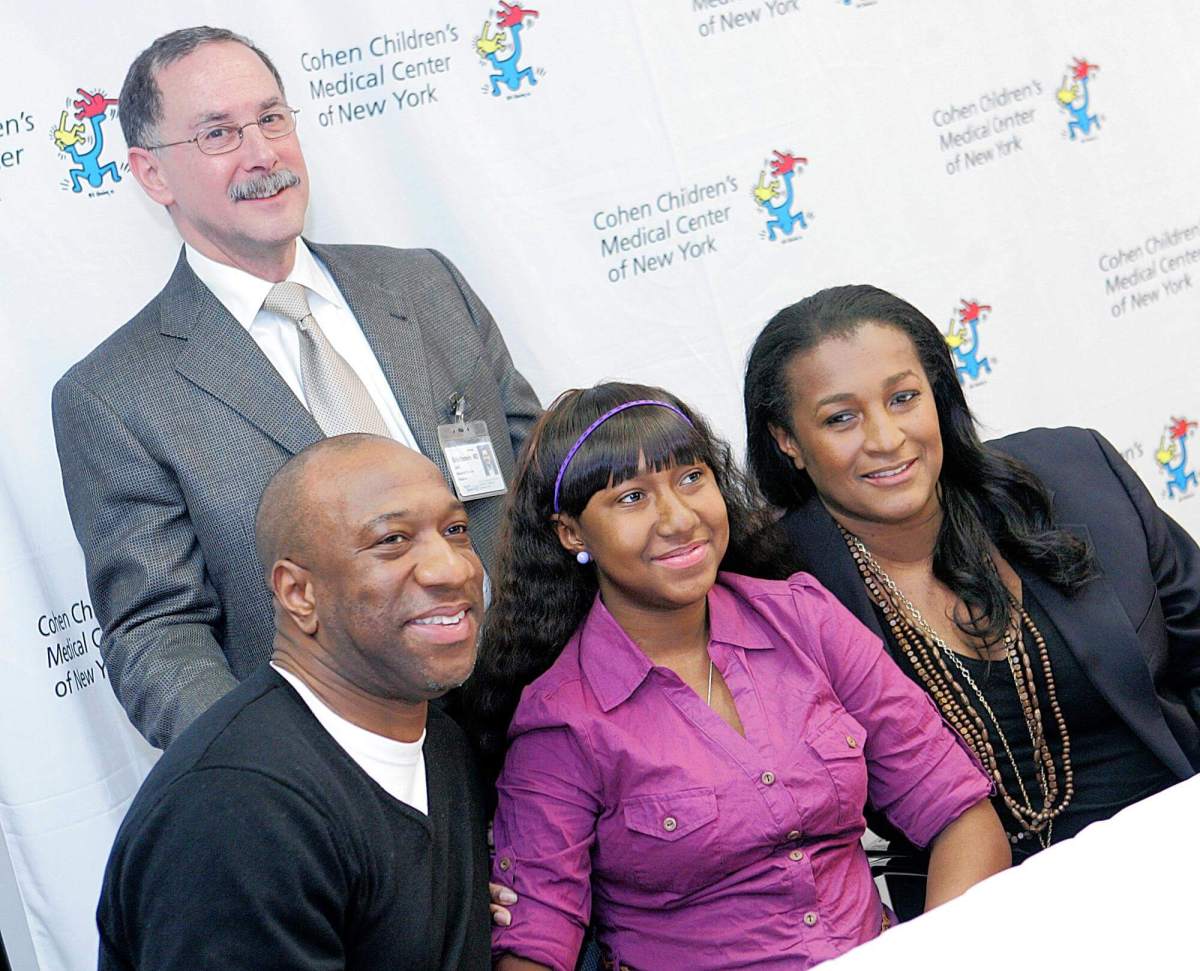By Howard Koplowitz
Hunter Haymore struggled with sickle cell anemia for all of her 14 years until an anonymous miracle bone marrow donor surfaced late last year to virtually cure her of the disease.
Hunter, a Rosedale resident who had been treated for sickle cell at the Cohen Children’s Medical Center, is the first patient at the hospital to have a donor who was not a blood relative.
Most often a sickle cell patient’s donor is a sibling, but the 14-year-old is an only child.
One out of every 500 African-American babies develops sickle cell, with the trait for the disease occurring in about one in 12 blacks, according to the U.S. Centers for Disease Control and Prevention.
The hospital’s stem cell transplant program was approved as a participating center of the National Institute of Health Bone and Marrow Transplantation Clinical Trial Network, which in part helps sickle cell patients find an unrelated donor.
The Haymore family found out there was a donor for Hunter Dec. 27 and she had the transplant Jan. 5. She was discharged from the hospital after the successful transplant Jan. 21.
“We got an amazing Christmas gift,” said Hunter’s mother, Donna Haymore.
Dr. Joel Brochstein, associate chief of cellular therapy at Cohen Children’s Medical Center, said there were no complications from the transplant.
“She’s made us look like geniuses, she’s done so well,” Brochstein said of Hunter.
He said the 14-year-old still needs her blood counts to be checked over the next six months and has to take medications before she can be considered cured of sickle cell.
“She’s not out of the woods yet, but she has every indication she’ll be fine,” Brochstein said.
Hunter said that while she was not the typical sickle cell patient — she did not have excruciating bone pain that most sickle cell sufferers experience — she was relieved the operation was a success.
“I was so happy,” said Hunter, who attends the private Lowell School in Bayside. “All I wanted to do was scream. Then I thought, ‘Now I won’t have to miss anymore school.’”
Hunter said she dreams of becoming a teacher or a pediatric hematology nurse.
“I know how it feels to be a kid in a hospital and I don’t want them to go through what I went through,” she said, referring to the days she dreaded having needles stuck in her arms.
Hunter’s father, Eric Berry, said Hunter had to deal with frequent blood transfusions as a sickle cell patient.
“It’s a little surreal,” Berry said of the transplant. “Every time we would make plans it was based on Hunter’s condition.”
Brochstein said that while there is a donor network, ethnic and racial minorities are underrepresented, a point also made by Hunter’s mother.
“I can’t stress enough how important it is for African Americans, minorities, everyone to become a bone marrow donor,” she said. “It can change a life.”
Although Hunter’s donor is anonymous, that status only remains for a year and her family would like to know who it was who saved Hunter’s life.
“Even though I don’t know if you are, if you’re out there … thank you very much,” the 14-year-old said.
Reach reporter Howard Koplowitz by e-mail at hkoplowitz@cnglocal.com or by phone at 718-260-4573.


































